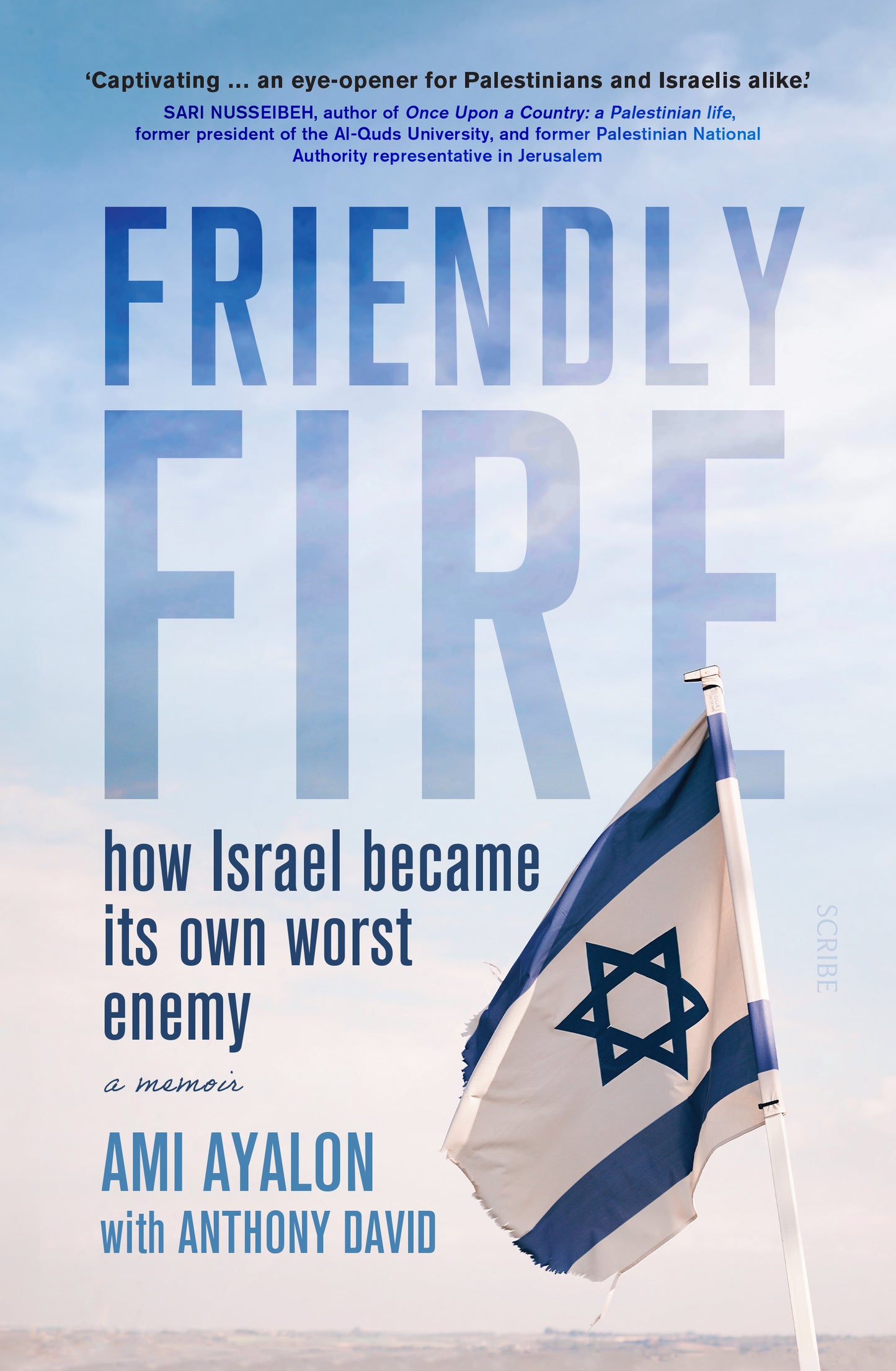-

A note on book covers: while we do our best to ensure the accuracy of cover images, ISBNs may at times be reused for different editions of the same title which may hence appear as a different cover.
Friendly Fire: How Israel Became Its Own Worst Enemy
Friendly Fire: How Israel Became Its Own Worst Enemy
Couldn't load pickup availability
In this deeply personal journey of discovery, Ami Ayalon seeks input and perspectives from Palestinians and Israelis whose experiences differ from his own. Raised a committed Zionist, as head of the Shin Bet security agency he nevertheless gained empathy for ‘the enemy’ and learned that when Israel carries out anti-terrorist operations in a political context of hopelessness, the Palestinian public will support violence, because they have nothing to lose.
Researching and writing Friendly Fire, he came to understand that his patriotic life had blinded him to the self-defeating nature of policies that have undermined Israel’s civil society while heaping humiliation upon its Palestinian neighbours. ‘If Israel becomes an Orwellian dystopia,’ Ayalon writes, ‘it won’t be thanks to a handful of theologians dragging us into the dark past. The secular majority will lead us there motivated by fear and propelled by silence.’
Ayalon is a realist, not an idealist, and readers across the political spectrum will regard as radical his conclusions about what Israel must do to achieve relative peace and security.
Details of Book
Related Collections:
A note on book covers: while we do our best to ensure the accuracy of cover images, ISBNs may at times be reused for different editions of the same title which may hence appear as a different cover.

-
One Line Summary
Insightful security expert advocates for Israel's change.
-
Who is this book for?
If you're interested in the complexities of Middle Eastern peace efforts and leadership reflections, this book offers a candid look at Israel's internal challenges. Ami Ayalon, with his background in security, delivers a thought-provoking perspective on how empathy and policy reforms could redefine the country's future. It's a compelling read for those curious about the human and political dimensions behind the headlines.

